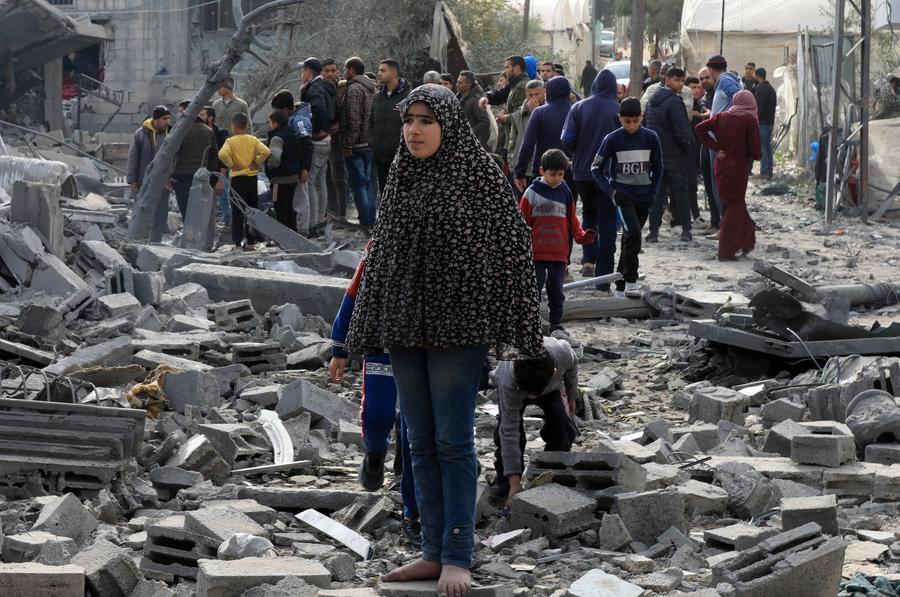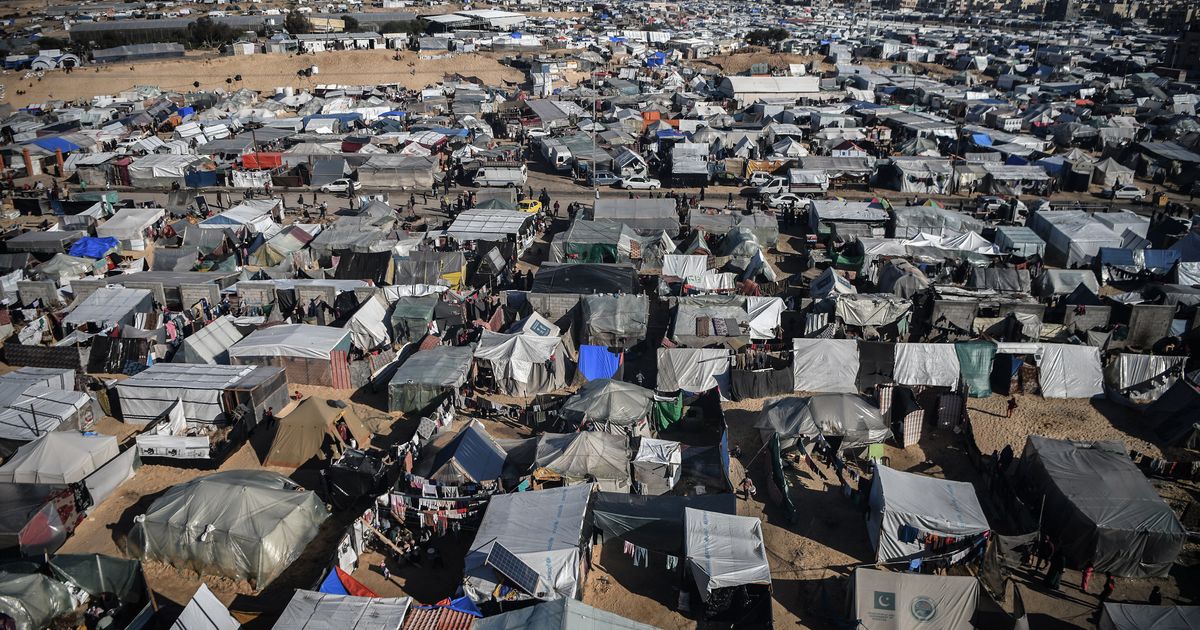Israeli airstrikes in the southern Gaza city of Rafah resulted in the deaths of at least 44 Palestinians, including more than a dozen children.
Prime Minister Benjamin Netanyahu’s announcement of a potential ground invasion heightened panic among civilians, particularly given Rafah’s dense population, with over half of Gaza’s 2.3 million inhabitants residing there.
The territory’s current evacuation orders, covering two-thirds of the area, leave civilians uncertain about their next move.
Rafah, bordering Egypt, is considered by Israel to be Hamas’s last stronghold in Gaza following months of conflict initiated by a Hamas attack on October 7.

Israeli Airstrikes in Rafah: Escalating Tensions and Humanitarian Crisis (Credits: Xinhua)
Egyptian Foreign Minister Sameh Shoukry cautioned against an Israeli ground offensive, predicting dire consequences and suggesting Israel’s aim is to expel Palestinians from their land. Egypt has been actively engaged in negotiations to secure a permanent ceasefire and the release of hostages taken during the initial attack.
Tensions between Israel and the United States are mounting, with US officials warning against an invasion of Rafah without adequate plans for civilian protection.
Despite Israeli directives for civilians to seek refuge in Rafah from ongoing combat in neighboring Khan Younis, airstrikes continue to target the area, exacerbating the humanitarian crisis. Airstrikes on residential homes in Rafah overnight resulted in the deaths of 28 individuals, including 10 children from three families.
The intensification of violence saw further casualties, including at least 11 individuals, including three children, killed in an airstrike on a home in Rafah. Israeli forces also targeted Nasser Hospital in Khan Younis, where at least two people were killed and five wounded.
The hospital, housing medical staff, patients, and displaced individuals, faced severe limitations in movement due to ongoing attacks, highlighting the precarious situation for civilians.
Gaza’s population has been significantly displaced, with approximately 80% seeking refuge amidst widespread destruction and shortages of essential supplies.
The death toll from Israeli airstrikes continues to rise, with the Gaza Health Ministry reporting over 28,000 casualties, predominantly women and children, since the conflict’s onset. While Israel holds Hamas accountable for civilian deaths, international criticism calls for more targeted military actions.
As tensions escalate, concerns grow over the humanitarian catastrophe looming in Rafah, exacerbated by the displacement of hundreds of thousands and the potential implications for the Israel-Egypt peace treaty. Despite international appeals for restraint and diplomatic solutions, the cycle of violence and suffering persists, underscoring the urgent need for a sustainable ceasefire and comprehensive peace negotiations.























